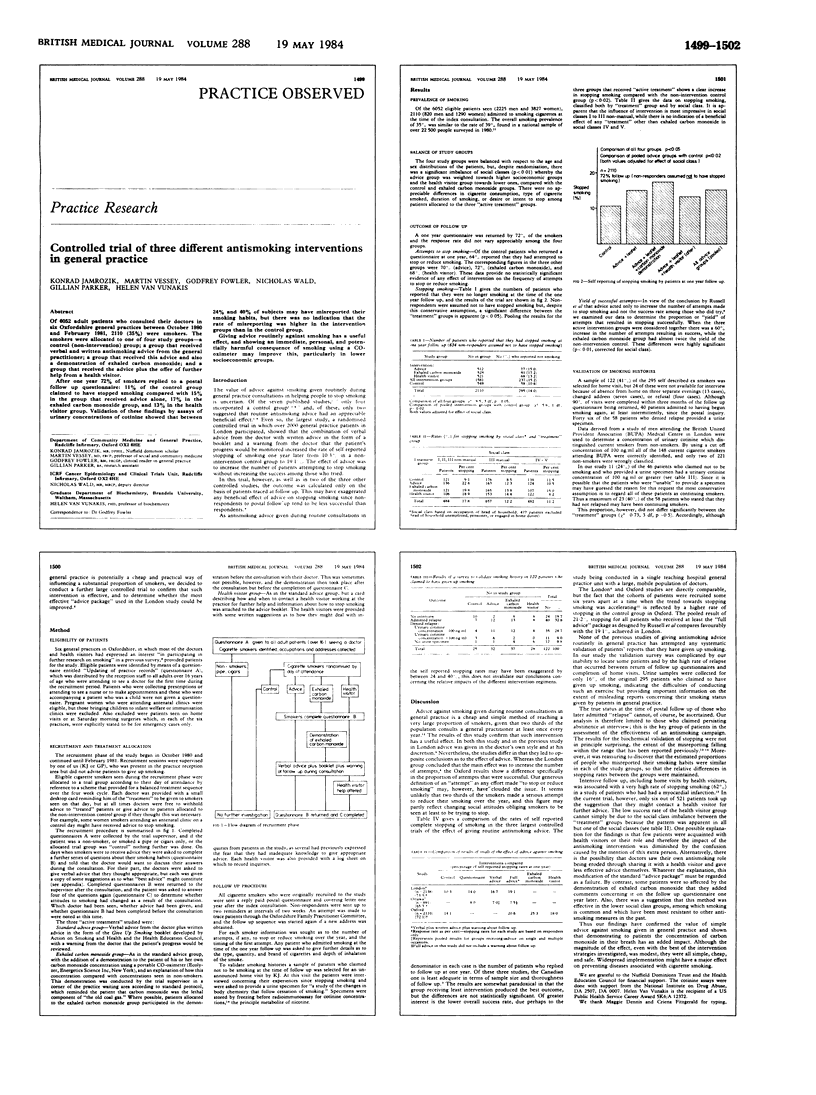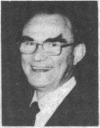Abstract
Of 6052 adult patients who consulted their doctors in six Oxfordshire general practices between October 1980 and February 1981, 2110 (35%) were smokers. The smokers were allocated to one of four study groups--a control (non-intervention) group; a group that received verbal and written antismoking advice from the general practitioner; a group that received this advice and also a demonstration of exhaled carbon monoxide; and a group that received the advice plus the offer of further help from a health visitor. After one year 72% of smokers replied to a postal follow up questionnaire: 11% of the control group claimed to have stopped smoking compared with 15% in the group that received advice alone, 17% in the exhaled carbon monoxide group, and 13% in the health visitor group. Validation of these findings by assays of urinary concentrations of cotinine showed that between 24% and 40% of subjects may have misreported their smoking habits, but there was no indication that the rate of misreporting was higher in the intervention groups than in the control group. Giving advice routinely against smoking has a useful effect, and showing an immediate, personal, and potentially harmful consequence of smoking using a CO-oximeter may improve this, particularly in lower socioeconomic groups.
Full text
PDF





